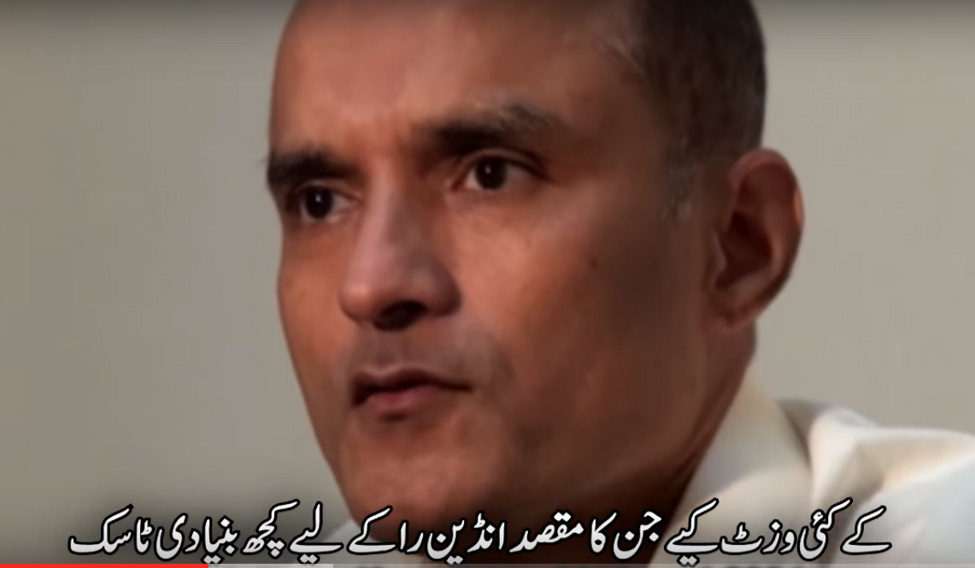It wasn't a move India wanted to make. For India, which is firm on the stance that issues should be resolved bilaterally, appealing to the International Court of Justice to intervene in saving the life of former naval commander Kulbhushan Jadhav was indeed the last resort. But finding itself against the wall, with 16 appeals for consular access denied, and even the emotional appeals from Jadhav's family to the Pakistani government for visas to visit their son not being responded to, India reviewed its options. It realised that with relations with Pakistan rapidly plummeting, this was not the time for any more direct appeals.
On May 8, India filed a case against Pakistan government, claiming it had flouted the Vienna Convention in the case of Jadhav. India accused Pakistan of “egregious violation of the Vienna Convention on Consular Relations'' claiming it was not informed of Jadhav's detention until long after his arrest and that Pakistan failed to inform Jadhav of his rights. It also alleged that denying consular access to Jadhav was a further violation of the Vienna Convention. Harish Salve, who represented India, pointed out that while Pakistan claimed it arrested Jadhav on March 3, 2016, India was informed of this only on March 25.
Salve also asked the court to declare as illegal any action taken by Pakistan with regard to Jadhav while the case was being decided.
The result was an immediate, minor victory. The court ordered a provisional stay on Jadhav's execution. The court's actual wordings are: “As President of the Court and exercising the powers conferred upon me under Article 74, paragraph 4, of the Rules of Court, I call upon your Excellency's government (Pakistan) pending the Court's decision on the request for the indication of provisional measures, to act in such a way, as will enable any order the Court may make on this request to have its appropriate effects.”
Sifting through the legalese, the order means that Pakistan, which is also a signatory to the Vienna Convention, has been directed not to execute Jadhav till the court decides on the case India has filed. A thrilled Minister of External Affairs Sushma Swaraj immediately tweeted the news. She even called up Jadhav's family and communicated the news to them.
India is uncomfortable with going to the ICJ for any matter regarding Pakistan as it fears that this could set a precedent for the Kashmir issue to be taken to the same court. The Jadhav case might have a ripple effect in future disputes with Pakistan, say foreign policy observers. The Ministry of External Affairs (MEA) ,however, said the “implications are conjectural at this stage. It was a carefully considered decision by the government of India.''
The Jadhav case has been a major problem for the Indian government, which stands to lose face internationally as well as within the country if he is executed. The government has tried several ways of reaching out to Pakistan. It began applying for consular access immediately after being informed of the arrest on March 25 last year. When Jadhav was sentenced by a military court last month, India first denounced the verdict, casting aspersions on the validity of the military court itself. However, when the Pakistan government stood by the verdict, India began toning down its stance. It first called Pakistan's deputy high commissioner to India and asked for options India had now to file an appeal against the verdict. There was a two month window to file the appeal. Then Jadhav' family sent emotional pleas to Islamabad, asking to know the condition of their son and seeking visas for a meeting with him. Those appeals too remained unanswered, and thus, the government resorted to the final measure of going to The Hague. Swaraj has appealed to Sartaj Aziz, both on behalf of Jadhav, as well as on behalf of his parents, seeking visas for them.
It is also believed that the secret mission that Indian industrialist Sajjan Jindal had when he met Pakistan prime minister Nawaz Sharief was to find a way to swap Jadhav with retired Pakistani army officer Lt Col Mohammed Habib Zahir
There is no information on how many spies from the two countries are in each others' jails. India has never executed a Pakistani spy though in 1999, Pakistan executed an India spy.
Timeline
March 3, 2016: Jadhav arrested from Baluchistan, according to Pakistan. According to India, he was picked up from Chabahar area of Iran
March 25, 2016: India informed of arrest
January 23, 2017: Pakistan requests India assistance in the investigations into Jadhav's alleged involvement in espionage
March 21, 2017: India informed by a Note verbale that consular access to Jadhav would be considered if India responded to Pakistan's request of assistance with investigation
April 17, 2017: Pakistan announces that a military court has sentenced Jadhav to death
April 26: India makes emotional plea to Pakistan, through appeals from Jadhav's family members.
May 8: India files case in the International Court of Justice, The Hague





